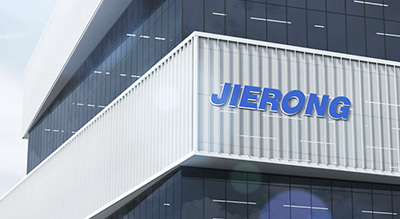Demystifying the world of capacitance: the core mechanism of energy storage
Release time:
2021-11-12
Recently, with the rapid development of electronic technology, the storage mechanism of capacitors, as a key component in electronic circuits, has attracted great attention from technology enthusiasts and professionals. Today, we'll take you through how capacitors store energy and their central role in modern electronics.

Recently, with the rapid development of electronic technology, the storage mechanism of capacitors, as a key component in electronic circuits, has attracted great attention from technology enthusiasts and professionals. Today, we'll take you through how capacitors store energy and their central role in modern electronics.
Fundamentals of 1. Capacitance
Capacitors, as components that store electrical energy, work on the basis of the concept of an electric field. Simply put, when a capacitor is charged, positive and negative charges form on its two plates, creating an electric field that stores energy. When the capacitor is discharged, the stored charge is released through an external circuit, generating a current. This process of storing and releasing energy is the basic working principle of capacitors.
Storage mechanism of 2. capacitor
The storage capacity of modern capacitors depends on their structural design and material selection. Among them, the dielectric layer is the key to store charge. When the capacitor is charged, the charge on the electrodes is stored through the dielectric layer. The quality and thickness of the dielectric directly determine the energy storage capacity and performance of the capacitor. In addition, the selection of electrode materials also has an important impact on the performance of the capacitor.
3. technology progress and application field
With the progress of material science, the energy storage density and performance of capacitors are continuously improved. Nowadays, capacitors have been widely used in various electronic devices, such as computers, mobile phones, electric vehicles, etc. In addition, the new capacitor also plays an important role in the field of new energy, such as wind power, solar power and so on. Their high-efficiency energy storage and fast charging and discharging characteristics make electronic devices more efficient in energy management.
4. Expert Views and Future Prospects
Industry experts said that with the continuous advancement of electronic technology and the rapid development of new energy fields, the research and application of capacitors have broad prospects. In the future, capacitors will play a central role in a wider range of fields, such as artificial intelligence and the Internet of Things. At the same time, with the emergence of new materials and technologies, the performance of capacitors will be further improved, providing strong support for the development of electronic technology.
In short, the capacitor is a key component in electronic circuits, and its storage mechanism is the basis of modern electronic technology. With the progress of science and technology and the development of new energy fields, the research and application prospects of capacitors will be broader. We look forward to capacitive technology in the future for the electronics field to bring more innovation and breakthrough.
Related Information
Difference between button super capacitor and single super capacitor
First of all, from the appearance of the structure, the button type super capacitor due to its compact, small design, usually presents a button-like shape, easy to install and use. Its precise size and compact structure make it widely used in small electronic devices, wearable devices and other fields.
The difference between single capacitor and module
In today's electronic field, the capacitor occupies a pivotal position with its wide range of applications. When it comes to capacitors, we often hear two types: single capacitors and modules. Although both play the role of storing charge, there are obvious differences in function and characteristics. Let's take a look at the main differences between the two.
Recently, with the rapid development of science and technology, the role of super capacitor has attracted more and more attention. As an emerging energy storage component, supercapacitors play an important role in many fields. Today, let's take a look at the various important functions of supercapacitors.
In the power electronic system, the single capacitor plays a vital role. It is a device that can store electrical energy and regulate circuits, and is widely used in various electronic devices. Below, we will delve into the use of monomer capacitors and their importance in modern science and technology.






